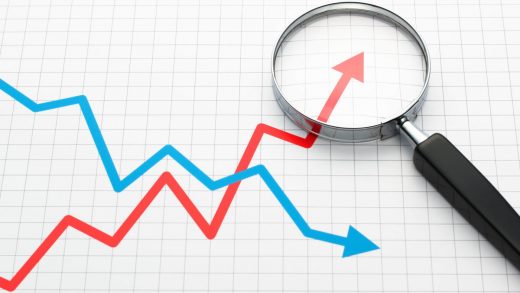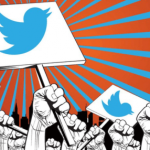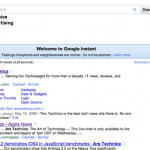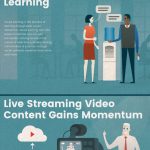Predictions: How Search Will Be Transformed In 2018 And Beyond
Predictions: How Search Will Be Transformed In 2018 And Beyond
by
Laurie Sullivan @lauriesullivan, (January 03, 2018)
Welcome to 2018. We like to think predictions have become more of a science than a best guess.
Artificial intelligence (AI) will take on new meaning this year as the technology moves from trend to staple. AI will help Amazon increase annual revenue from advertising and will support media bidding and the rise of blockchains and virtual currencies.

This year, the focus turns to trust. It will take trust to share data and build transparency into the advertising supply chain by knocking down silos between companies.
Facebook and Google will stagnate. The cost per click will rise. Pinterest and Facebook will become “search engines.” Microsoft will gain a higher share of advertising revenue, while newer entrants like Verizon, Oracle, and SAP will find their place to support marketers, brands and campaigns. Of course, these are speculative, educated guesses.
What will 2018 bring? Despite the lack of an analytics platform to dump data in and turn out predictions, Search Marketing Daily reached out to some of the brightest marketers in the industry to share their predictions. Some of the opinions are paraphrased. Here’s what they had to say.
Christi Olson, head of evangelism for search at Microsoft,
predicts that artificial intelligence and audience targeting will gain significance in 2018, and that AI will drive change across consumer behavior, marketing operations, and automation. It will save time and create efficiencies for bid strategies such as enhanced CPCs, ad copy optimization and rotation, and advanced audiences. Machine learning will be integrated into tools to make sense of the data and will string together consumer journeys and optimize messaging and campaigns in real-time — something that is difficult to do manually.
Marketers will need a keyword and audience strategy. Keywords will remain relevant and important, but the use of audience data for
in-market audiences, custom audiences, customer match, similar audiences, and RLSA breaking segments from site behavior, as well as cross-marketing channel behavior, will separate the cream of the crop.
Audience-targeting capabilities will expand and become more complex through means such as conversational platforms and intelligent agents. The entertainment industry has begun to follow consumer behavior and incorporate digital assistants such as Siri, Google Assistant and Cortana in commercials, TV shows and movies.
The use of chatbots to help brands communicate with consumers will grow as voice search is increasingly used across devices. The challenge with chatbots has been discoverability, which is why Bing is beta-testing a
chatbot ad extension. We expect to see more brands use chatbots that transition from “question and answer” to “question and action.”
Steve Gibson, vice president, group director of search at Canvas Worldwide,
says 2018 will mark the rise of new search engines. Google, Bing and Yahoo have been the primary search destinations for the last 10 years, but they are likely to see a reduction in traffic as search becomes more social and visual.
This year, Facebook will truly enter search. Facebook has loads of data on businesses including sentiment — something Google does not have. Although Facebook has a few billion searches daily, most of them are not commercially viable. This is probably because most people don’t think of Facebook as a search engine in the same way they consider Google a search engine. But how difficult would it be for Facebook to change this perception?
Pinterest will become known as a search engine. The average time spent on Pinterest is 14.2 minutes. The average time spent searching on Google or Bing is a little under two minutes. Searchers enter a keyword, review results and click on a result (paid or organic). If they do not like the results, they return to check out other results or refine their search. Either way, Google is a way station to a destination, whereas Pinterest is a destination where people can search, curate and share.
Aaron Goldman, chief marketing officer at 4C Insights,
predicts that in 2018, we will stop labeling things “search” or “social” and just call them platforms. Is Pinterest a bookmarking social network or a visual search engine? Is Amazon an e-commerce company or a product search engine? Is Alexa a digital assistant or a voice search engine? Is Google a search engine or an everything engine?
The answer is yes to all the above questions — and that’s why we must remove the labels and do away with the organization of teams and tools around channels like search and social. Instead, the industry needs to organize around audiences and experiences. In 2018, we will see the first steps toward this new media world order.
Mike Blumenthal, founder of Understanding Google My Business & Local Search
forecasts that while voice will continues to grow, this will not be the year of voice and voice assistants in local marketing. The technology is still too fragmented and crude to provide the sorts of experience that will achieve success in local search.
Messaging will see significant lift for both single and multi-location businesses. Apple will finally release a B-to-C product in messaging that will increase among upscale players. Facebook will continue to find creative uses for Whats App and, if the past holds true, Google will continue to confuse the market with 17 messaging products. But progress will be made none the less.
Google Q & A is the latest hazard that local brands, large and small, will learn about in 2018. Many do not know it exists. With the rollout of the Knowledge Panel-based Q & A in 2017, Google shifted control of the discussion for branded local results to the consumer. Local businesses of all sizes will need to develop strategies and tools to cope with it.
Janel Laravie, founder and chief executive officer of Chacka Marketing, forecasts that advertisers will become more serious about attribution and technology will catch up, with strong cross-device and cross-channel capabilities. Biddable media will increasingly rely on artificial intelligence, moving from testing to standing operating procedure. Sponsored voice results will emerge and will become the most expensive ad format, as only one ad will be available per query.
David Grow, digital media director at Chacka Marketing, predicts that marketers will invest more of their advertising and marketing budget in Amazon. Google will keep tweaking its shopping offering and expand its marketplace in an effort to regain footing that has been lost to Amazon in the retail space. All browsers will adopt the Safari model of reducing cookie life to 24 hours.
Collin Holmes, Chatmeter CEO, predicts that marketers who optimize only for typed — and not voice — searches will be at a huge risk of missing out on search views. One way to support this trend is include FAQs on the site.
Josh Brisco, operational head of search at CPC Strategy, forecasts that paid media marketing will continue to transition toward an audience-centric medium. With both Google and Facebook continuing to improve capabilities of customer matching, and more retailers understanding and optimizing against customer lifetime value, the customer — not just their intent — will increase targeting.
MediaPost.com: Search Marketing Daily
(35)













